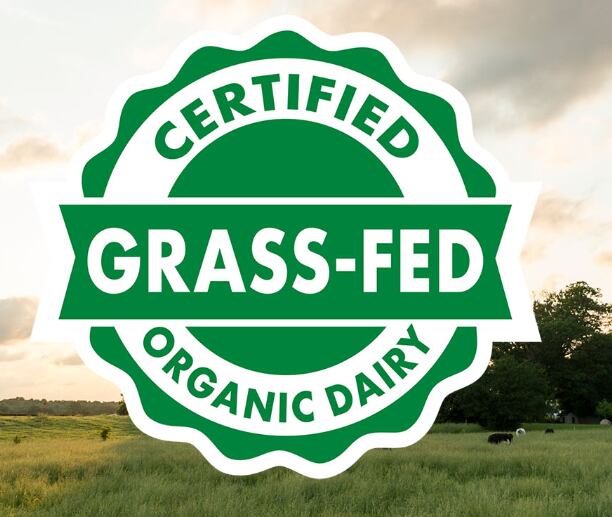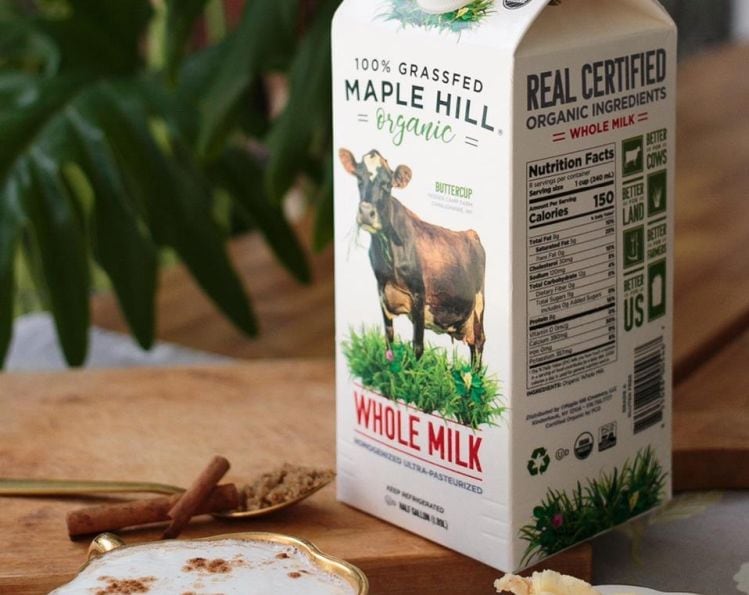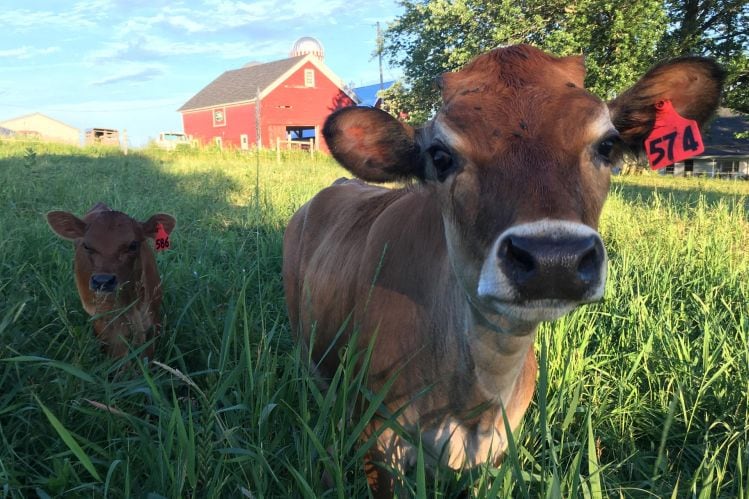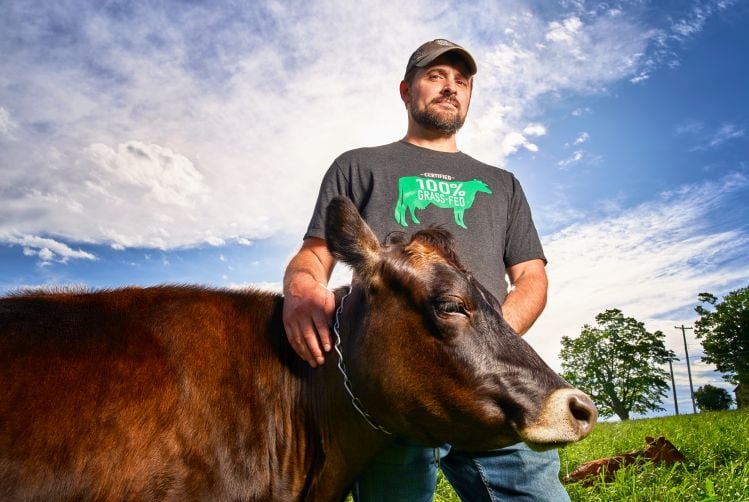The food system of the future is likely to include a mixture of plant-based ‘meats’ and ‘milk,’ cell-cultured meat, and more humanely-produced eggs, meat and dairy produced on farms that use regenerative farming practices, predicted Joseph, who said no two farms or farming systems are the same.
“The plant-based meat and dairy movement and the grass-fed and regenerative movement are the same tide that can raise all our boats, so I don't know why Impossible Foods is shooting torpedoes at people that are pulling in the same direction.
"We're all trying to provide better solutions to consumers who are starting to wake up about [what's happening in] the food system.”
In its 2019 impact report, which prompted rapid rebuttals from The American Grassfed Association, the Rodale Institute and the Savory Institute, plant-based meat specialist Impossible Foods said regenerative agriculture proponent Allan Savory’s ideas had been “thoroughly debunked.”
While “regenerative grazing may beat industrial bovine strip mining on a couple of fronts,” it added, “It’s all still rooted in the same inefficiency of animal metabolism… Whatever the branding - regenerative grazing, holistic grass-fed beef, ‘carbon positive’ grazing - none are sustainable at scale, and all are insufficient to feed the growing demand for meat and dairy products.
“In most cases, industrial feedlot beef actually requires less natural resources and generates less greenhouse gas than does grassfed beef.”
'Plants and animals have co-existed together for thousands of years'
But ditching animal agriculture altogether is not the answer, insisted Tim Joseph at Maple Hill, which makes organic dairy products from 100% grassfed cows.
“I’m not against plant-based meats, but plants and animals have co-existed together for thousands of years,” he told FoodNavigator-USA.
“There are a lot of problems with feedlot corn-fed beef, it’s not humane, it’s not healthy for the planet, it’s awful, so I have no idea why Impossible Foods decided to go after regenerative farming, of all the types of agriculture they could have attacked. I also know farms that by implementing Allan’s methods have increased production on the same land by 60%.”
He added: “Visit any soybean farm – whether it’s GMO, conventional or organic, and you’ll know that the idea that plant-based agriculture is going to lead to more biodiversity and a better ecosystem is ludicrous.
“The soil that they are growing the plants in was put there by animals, and we’ve lost the topsoil that was put there by large ruminants.”
Big monocrops of soy or other plants that are used in dairy/meat alternatives still need inputs (fertilizers, pesticides etc) whereas Maple Hill’s ‘inputs’ are manure from the grazing cows, said Joseph, who said he was regenerating the soil, supporting wildlife biodiversity, sequestering carbon and limiting pollution of waterways.
“We’re also talking about communities that have been gutted because of the move towards industrial agriculture, and regenerative agriculture is actually bringing people back to these communities, to make things better.”
Closed loop model
Maple Hill's 'closed loop' model - whereby cows eat grass from pasture and baleage and spend most of their time on pasture -“bypasses the considerable resources used to produce the corn, soybeans, or grains” fed to conventionally-raised dairy cows (grass-fed cows produce manure, which feeds the soil that grows the grass they eat), he claimed.
Its 100% grass-fed dairy cows also have a longer, healthier life than their conventionally-fed counterparts, he argued: “Our cows [Maple Hill procures milk from 150 farms in the New York State area] enjoy daily access to the outdoors all year round.
"They socialize with their herd mates, and are less stressed and happier than cows in CAFOs [concentrated animal feeding operations] or even large organic dairy farms. In the winter they eat hay [dried grass] and baleage [fermented, high-moisture grass], so they are 100% grass fed.
“Ruminants are not meant to eat grains and corn. They didn’t do that for thousands of years; they ate grass. It’s only happened at scale over the past 100 years and when they do, the longevity of that cow is diminished hugely, and that’s not humane. It leads to hoof and leg issues and metabolic disorders.”
‘It’s not all ponies and unicorns’
Asked about the recent animal welfare violations at Fair Oaks Farms, a supplier to high-protein milk brand Fairlife, he said:
“Obviously the key takeaway from the video is that this was horrific animal abuse that was really hard to watch. But I think it also serves as a huge wake-up call: a reminder of what industrial agriculture really looks like. If you treat biological beings like machines, this is where it can lead.”
While the farm’s owners were clearly distressed by the footage and fired those responsible, he said, “If you go to a restaurant and the servers are rude, it’s usually a reflection of the kitchen or the management. It doesn’t come from nowhere. And that is not a comment about Fair Oaks Farms or its management, but about industrial-scale agriculture.
“Most consumers are so far removed from farming that they have this picture in their minds of what a dairy farm is like, and it doesn’t line up with reality.
“If you show what happens on a farm to someone that has no context, no knowledge, it can be shocking to people. It’s not all ponies and unicorns.”

New York state-based Maple Hill makes milk and other dairy products from 100% grass-fed organic milk.
As the term ‘grass-fed’ is not legally defined, no two grass-fed claims are the same, which is misleading consumers and creating an uneven playing field, claimed Maple Hill CEO Tim Joseph, who said consumers assume, not unreasonably, that 'grass-fed' means exclusively grass-fed.
“Without a third-party certification, consumers cannot be certain of how much grass the cows actually are consuming, which is why we’ve worked with Organic Valley to develop the new certified grass-fed organic dairy seal, which you’ll start seeing on products soon.”
To qualify, all animals receive 60% of their dry matter intake from pasture over at least a 150-day grazing season (as opposed to 30% and 120 days per the National Organic Program standards), he said.
“What we need now is the gatekeepers in the system - the retailers and distributors - to start asking more questions about grass-fed claims from their suppliers and require verification just as they do with any other claim.”
While the yogurt segment is really challenging for many players right now, Maple Hill’s organic grass-fed milk is performing very well, said Joseph. “We’re just killing it. Yogurt is tough, but the milk is going crazy and our kefir is doing well within the category.”



